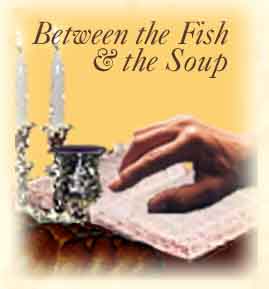
by Jacob Solomon
This Week's Parsha | Previous issues | Welcome
- Please Read!
e-mail: jacobsol@netvision.net.il
| 'Cursed is the one who will not uphold the words of the Torah to perform them'. And the entire people shall say 'Amen' (27:26).
This is the final curse that was to be proclaimed by the Levites facing Mount Eival, when the Israelites entered the Promised Land under Joshua. It follows eleven more specific curses upon those guilty of wrongdoing, such as idolatry in secret, perverting justice, incestuous relationships, and the more subtle form of theft (moving the boundary of a neighbor's land). Two questions: firstly, why was this forthcoming event expressed in curses? Moses commanded the Levites to bless the Israelites - as the text opens: 'These shall stand to bless the people on Mount Gerizim'. This is then followed by 'And these shall stand for the curse on Mount Eival'. As the Talmud (Sotah 37b) states, the blessings for those would refrain from the above misdeeds were announced by the Levites facing Mount Gerizim. And only after that, the curses for those who would transgress those prohibitions were given by the Levites facing Mount Eival. But the detailed text is only given for the curses, as summarized above. Secondly, the eleven detailed curses do not appear to cover all the essentials of Torah observance. There are no curses listed for those who transgress the laws of Shabbat, Kashrut, or family purity. What do these eleven specific curses have in common? The Rishonim discuss this last question. The Rashbam, as explained by the Or HaChaim, says that the blessings and curses are acts of the kind that transgressors would do secretly. This is exemplified by 'Cursed is the one who strikes his friend in secret' (27:25). This also fits with the listed forbidden relationships - the curses focus on incest - within the family. Family matters tend not to be publicly exposed, but they are kept discreet. The Sforno comments differently: namely that the cursed offenses are the sort of sins which are committed by powerful and influential people, who are often beyond the reach of legal proceedings. Accordingly, Moses wanted the people to declare that they despised such deeds, so that the masses would not be punished for the corruption of those they cannot restrain. These points also helps to explain a verse at the end of Moses' warnings in Parashat Nitzavim. After warning the Israelites of the consequences of an individual following specifically idolatry, he concludes with a final general statement: 'What is hidden is (known to) the L-rd our G-d' (29:28). The word nistar - meaning 'hidden' would not just not cover the sins which could not be prevented because they were secret (as Rashbam), but also those which were 'hidden' to the degree that they would have been beyond the public to intervene with and take action (as Sforno). As pointed out earlier, the details of the event at Mount Gerizim and Mount Eival were pre-recorded in the Torah in the form of curses only. This was to impress on the Israelites two things. Firstly, that they were to abhor such conduct even if they were currently unable to prevent it. Secondly, by ceremoniously dramatically condemning such behavior, they would create an atmosphere and morale whereby such sins would never take place. This takes the lines of both the Rashbam and the Sforno even further. Not only was such behavior condemned, but the community at large had some indirect role in preventing it. In short, the Torah implies the concept of corporate moral responsibility. This discussion also helps to explain a difficult passage in Joshua. Before the Israelites conquered Jericho, they were instructed that all the wealth of that city (presumably because it was connected with idolatry) had the status of Herem (halachically ordained severe ban), and was not to be looted (Joshua 6:18-19). Of the hundreds of thousands of Israelites that invaded the Promised Land, all but one complied with Joshua's instructions. They indeed captured the city, but they did not take the spoils for their own use. Only one person - Achan - did take from the banned objects. Nevertheless the text records: 'the Israelites (plural) acted treacherously with the banů Achanů of the tribe of Judah took from the Herem and G-d was angry with the Israelites' (ibid, 7:1). Because the Israelites did not succeed in creating a positive atmosphere where such conduct would be unheard of, the text shows that they were held collectively responsible for Achan's transgression.
e-mail:
jacobsol@netvision.net.il This article is provided as part of Shema Yisrael Torah Network For information on subscriptions, archives, and http://www.shemayisrael.co.il Jerusalem, Israel 972-2-641-8801 |